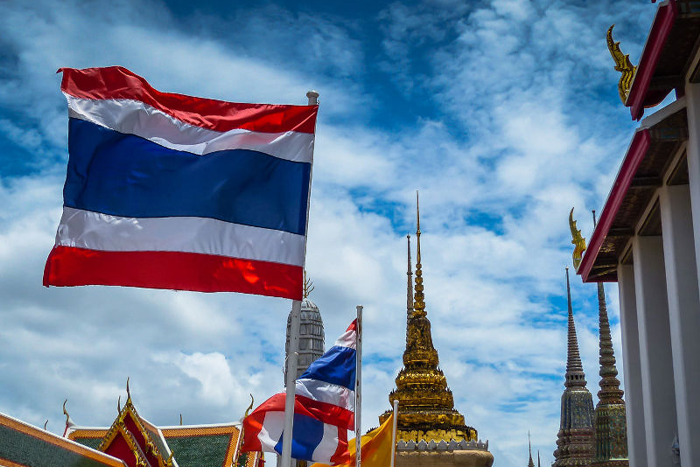Chairman’s Note
Private and Confidential
For SIIA Corporate Members and Advisors
March 2025
Prabowo’s Indonesia: Thus Far, Too Fast?
In Indonesia, the Prabowo administration is now past its first 100 days and counting. From the start, there has been an emphasis on continuity as well as a grand coalition of many parties, and therefore an enlarged cabinet. However, perspectives shared during a recent visit suggest that there are some negative signs. While many remain hopeful that Indonesia will continue to grow, the situation bears watching.
Please allow me to share some of my thoughts with you as our corporate member and friend. Market anxiety is now notable and, while this note was written before this received headline attention, my points in this and past notes indicate some underlying concerns. I do meet and engage with some key ministers in the Prabowo administration and the SIIA will look to host a number of them in future. As such, I kindly request that you keep these views confidential.
1. Speed and Resistance: Prabowo would seem to be in a strong position, judging by a sky-high approval rating of 80 per cent. But Prabowo’s emphasis on speed and quick wins is raising concerns and meeting with resistance. This can be seen at the popular level. Indonesian university students have taken to the streets yet again, with the slogan #IndonesiaGelap – or Dark Indonesia. Protestors have rallied against Prabowo’s dramatic $19 billion budget cut mainly to fund his Free Lunch Programme, expanded military roles in civilian work, and the risk of higher tuition fees, among others.
2. Coalition Management: Political elites remain within Prabowo’s cabinet and grand coalition, the Koalisi Indonesia Maju (or KIM, translated as the Onward Indonesia Coalition). At the 17th anniversary of Gerindra, Prabowo’s political party, the proposal was raised to make KIM a permanent coalition which seemed to be generally welcome. Some however were non-committal, including the NasDem party. The concern is that if KIM is made permanent, parties might be forced to compromise and even obey Gerindra’s lead in parliament. Again, there is a sense that Prabowo is pushing fast for a more unitary and centralised authority.
3. Sovereign Fund: The establishment of Danantara as a sovereign fund is seen in this context. This was a campaign promise and swiftly launched on 24 February under the leadership of Minister of Investment Rosan Roeslani. The aims seem positive: to consolidate the largest SOEs and harness them to accelerate the growth rate in line with Prabowo’s goal of 8 per cent economic growth within his first term. In line with this and down-streaming priorities, Danantara will inject USD 20 billion of investments into renewable energy, nickel, food production and oil industries. But there was concern about the speed and lack of consultation, as well as questions about who ultimately controls the companies and can access their funds. Minister Rosan led the Prabowo campaign team and is seen to be close to the president.
4. Priorities and Limited Funds: One of the challenges mentioned in our notes in March and June 2024 is about the many budget priorities – infrastructure and the new capital, military spending and the proposal for free lunches amongst them. There is a limited amount in public coffers, especially after the pandemic, and fiscal discipline is needed. The decision to prioritise free lunches, while laudable, is questioned in this context. This is one of the reasons for the negative market reaction.
5. Anticipating 2029: When Prabowo joined forces with Jokowi’s son, Gibran, as his vice-president, many speculated that the latter would run for the top job in 2029. Speculation continues. However, Prabowo has also been nominated by the party he leads, Gerindra. Now the idea is being floated by Jokowi to create his own party. While there is no immediate public schism, this should be monitored, especially if the Prabowo administration support falters and resistance grows.
6. Alignment with US, China, or both? Turning to Indonesia’s foreign policy, manoeuvres between the US and China should be watched. While Prabowo has tried to be on Trump’s good side, he has also struck a $10 billion deal with China focused on infrastructure and green energy. Indonesia joining BRICS is yet another question and the Prabowo administration will have to juggle between heeding Trump’s warning about moving away from the USD-world order and the alternative way paved by China-led BRICS.
7. China-washing? Given close economic ties with China, Indonesia faces the danger of being hit by Trump’s dramatic tariffs, especially in its crucial nickel industry. Businesses in Indonesia should brace against US tariffs imposed on goods in China’s supply chains in Indonesia. Simultaneously, with Chinese entry into Indonesia, there is concern about increased competition arising from the high influx of cheaper goods.
The efforts to change and move Indonesia forward are large scale and fast, and despite the grand coalition, politicking is rising. If you wish to share insights or discuss this further, I would be glad to hear from you.
Yours sincerely,

Simon Tay
Chairman
![[Premium] Chairman’s Note: Prabowo’s Indonesia: Thus Far, Too Fast?](https://siiaonline.org/wp-content/uploads/2025/03/Indonesia-Flag.webp)



